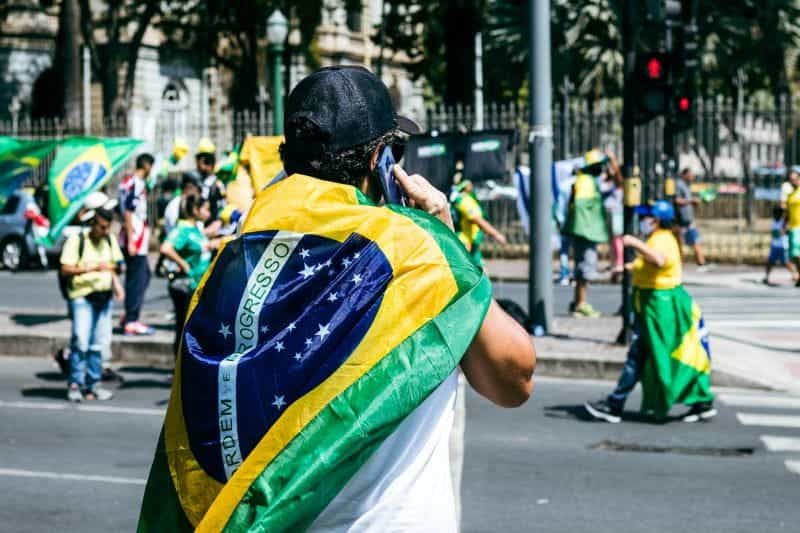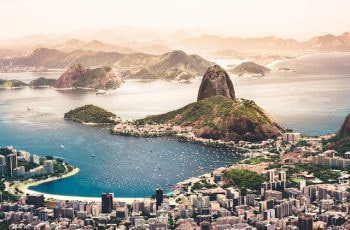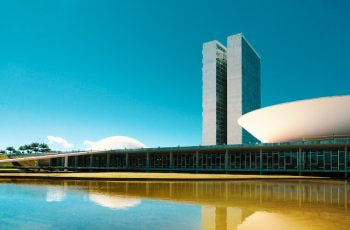Brazil’s Presidential Race Heads to Second Round
In Brazil, considered Latin America’s largest democracy, citizens cast their votes on Sunday night to determine the results of a historical presidential election. The controversial incumbent, President Jair Bolsonaro faced off against 10 other candidates from various parties. However, the number one challenger was former president Luiz Inácio Lula da Silva. Indeed, Sunday’s initial vote ended with Bolsonaro and da Silva close enough in votes to warrant a run off vote on October 30, 2022.

Brazil’s 2022 Brazilian presidential election has resulted in a close race between former president da Silva and incumbent Bolsonaro and will need a run off to determine the winner. Matheus Câmara da Silva/Unsplash
A tense run up to the 2022 Brazilian Presidential Election
The results of this election have been highly anticipated for months. President Bolsonaro is associated with right-wing populism and made many controversial statements and decisions throughout his time in office, some of which raised eyebrows around the world. However, he enjoyed a great deal of popularity within Brazil for a time.
His handling of the COVID-19 pandemic, which claimed 685,927 lives in the country according to the World Health Organization, inspired disappointment and dissent from the population. In recent months, Bolsonaro changed positions on several issues in order to reclaim some of his voting block, in particular evangelist voters; one such decision involved the legalization on gambling, which he initially showed support for and then later threatened to veto.
Pre-election polling analysis showed that Bolsonaro was unlikely to make it out of the first round of voting this October. His main rival, da Silva — who is affectionately known as “Lula” by his supporters — polled far ahead of him. In Brazil, the first election can include any number of candidates. This year it involved 11 contenders from various parties. However, a run off is mandatory if no single candidate reaches about 50% of the popular vote.
Unfortunately for da Silva and his supporters, he just missed the cut off for avoiding a run off. He still came out ahead of the incumbent by several points. In the end, the results were da Silva with 48.4% of votes and Bolsonaro with 43.23%, with the rest divided between the lower profile candidates.
Bolsonaro’s seeds of doubt
Bolsonaro had warned for months leading up to the election that results might be fraudulent, going so far as to personally ask US President Joe Biden for his support — despite how much his words echoed former president Trump’s sentiments about the 2020 US presidential election. Still, the incumbent also told his supporters that he was being underestimated in the polls.
Indeed, Brazil’s largest polling organization Ipec was far off when it came to the votes for both Bolsonaro and many of his associates in Sunday’s election. Bolsonaro brought in more votes in all of Brazil’s states than what Ipec’s polls suggested. Several of his associates — including his former health and environment ministers — were elected to Congress.
This is surprising given how much these ministers had been blasted for their tenures in Bolsonaro’s administration, in particular his health minister who delayed buying COVID-19 vaccines for the population, probably resulting in a greater number of deaths.
Lula’s comeback
Despite initial gains for Bolsonaro and his supporters, his campaign has a tough fight ahead during the next four weeks. His opponent da Silva has a vastly different plan for the country and its 217 million inhabitants. Whoever is elected will have to contend with several crises at once: concerns over the environment, mounting poverty, a shell-shocked economy, and a divided nation.
Bolsonaro is hoping to not become the first incumbent to lose his re-election bid since 1988. Meanwhile, da Silva is experiencing what the New York Times called a “stunning political revival that years ago had seemed unthinkable.” Though da Silva led during a particularly prosperous time for Brazil, he was immediately convicted and jailed on corruption charges.
The charges were later dismissed by Brazil’s Supreme Court, but the stain remained. Brazil’s conservative population still sees da Silva as part of the problems that led Brazil into crisis. On the other hand, leftists consider Bolsonaro to be a major threat to all they hold dear.
Brazil currently has a comprehensive gaming bill in its legislative system. However, the actual legalization of the bill has been held up for the better part of a year. If he is still president when the bill comes through, Bolsonaro has promised to veto it, but congress would likely override his veto. It is unclear how da Silva would approach the topic of gambling legalization if elected. It is clearly still an important matter for citizens and industry leaders alike and will need to be ruled on at some juncture.



